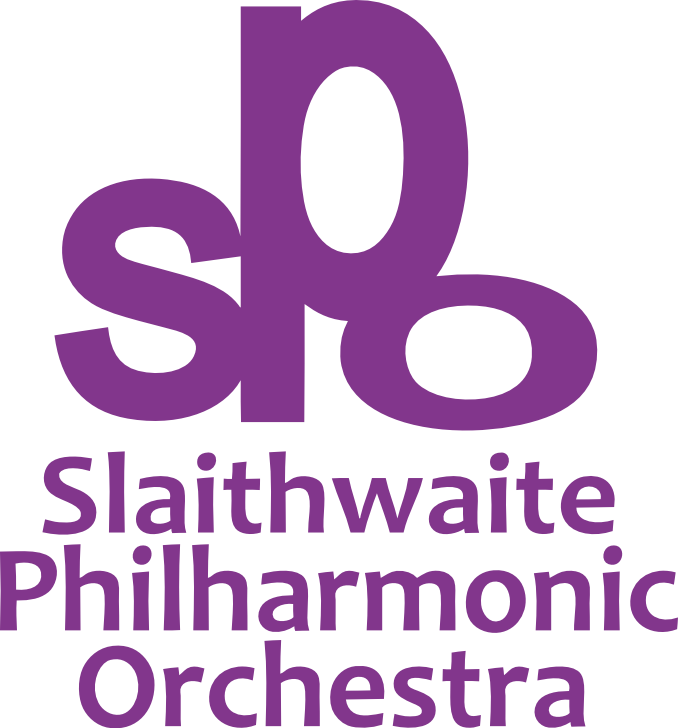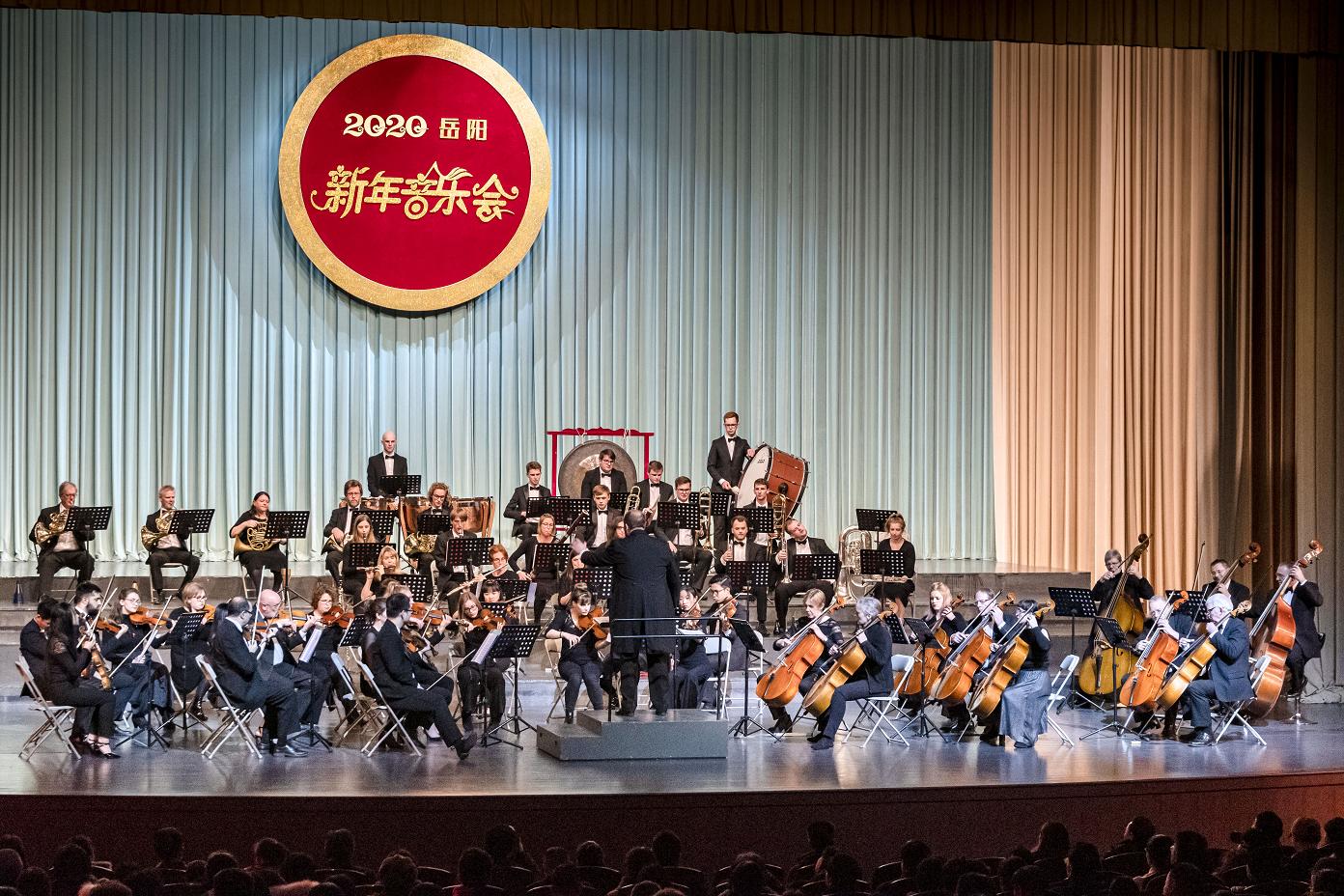 |
|
The Orchestra was recently invited back to China. |
|
Our principal flute Lynda Robertson, reports her experience again: |
|
| (To read her account of our first visit to China, click here) | |
|
|
|
We went back to China! Variations on a Theme… |
|
|
Boxing Day 2019 and once again a number of SPO members were making our way to Manchester Airport, along with our conductor Benjamin Ellin, a much larger number of guest players than was the case two years ago, as well as a few supporting family members. Some more guest players were based in China and would join us there. This time we took the direct Hainan Airlines flight to Beijing, which was a little cramped, but comfortable enough with reasonable food. Last time we had travelled via Istanbul to Shanghai.
|
|
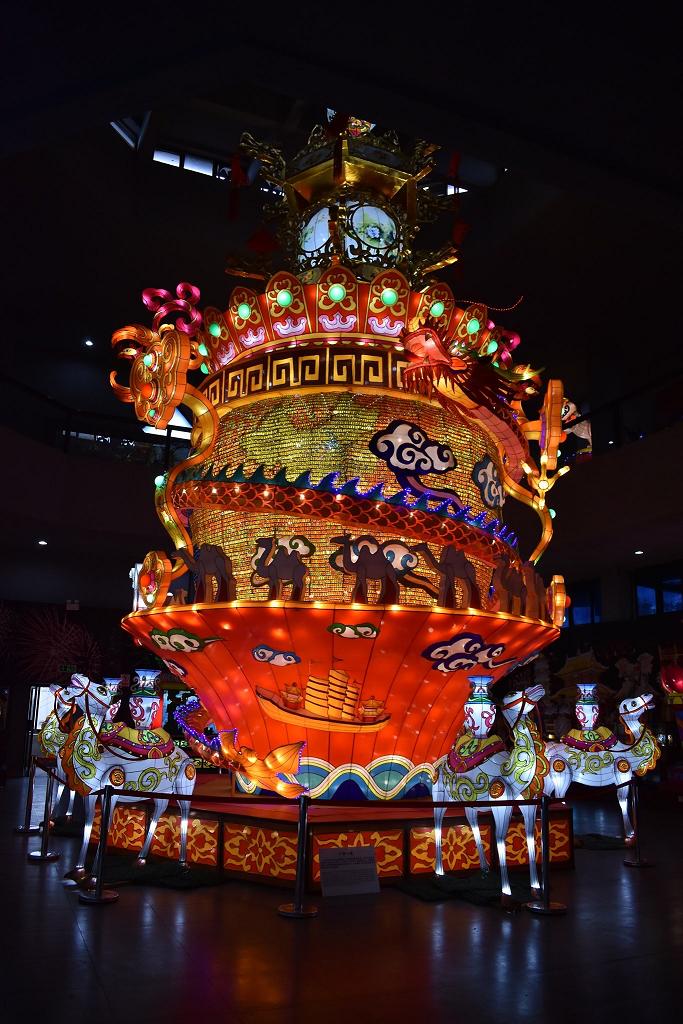 |
Arriving in Beijing very early on Friday 27th, there was scarcely enough time to transfer to our internal flight to Chengdu and a few circumstances conspired against us: a painfully slow immigration queue, one broken suitcase, a damaged tuba case, a mad dash to the other terminal during which a group of us lost sight of the others, someone’s passport being temporarily misplaced by a member of the check-in staff as they hurriedly checked in our luggage…then lastly some frustratingly over-zealous and time-consuming security checks on our hand luggage! We finally made it onto the flight and arrived in Chengdu a couple of hours later, to be joined by our guide, Lulu (our agent from OLA ASIA) and her helpers, some more guest players, including our lead violinist for the tour, Tadasuke Iijima, and viola player Ryan Yeap, a former member of the SPO who now works in Shanghai. |
| The final leg of our 29-hour journey was a 3-hour coach ride to Zigong. As we approached the city we noticed life-sized model dinosaurs lining the route: Zigong, or “Salt City”, is the salt mining capital of China and considerable dinosaur remains have been found among the salt deposits. A group of us visited the mining museum the following morning and learned more about this. | 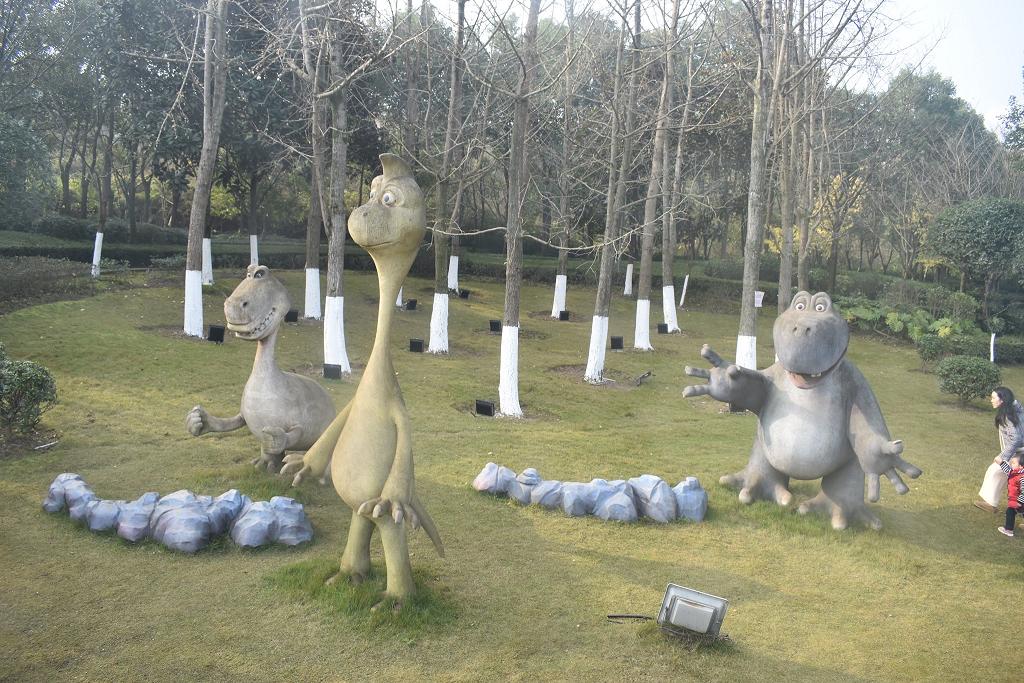 |
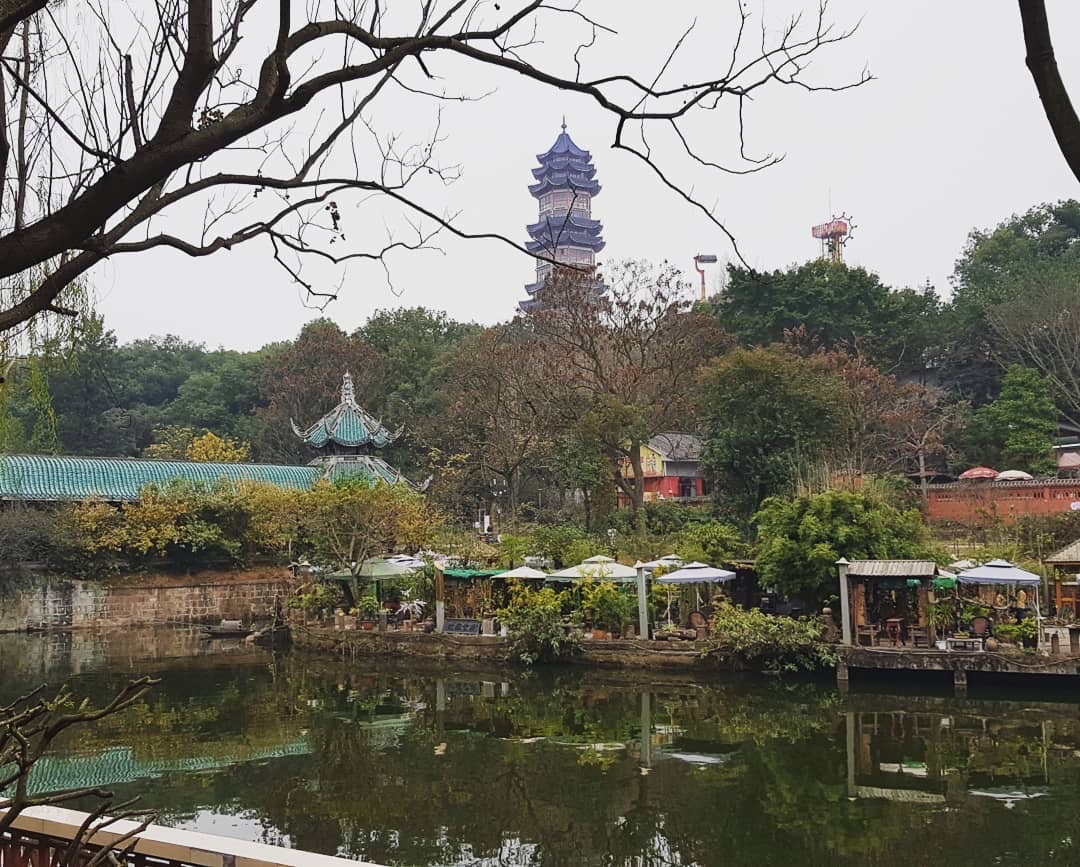 |
The hotel at Zigong was next to the Technological University, where we would perform the following evening, and we now had time to rest, relax and explore until the rehearsal just before the concert. |
Saturday 28th December – Zigong – Concert No.1 at Zigong University |
|
| Zigong, in Sichuan Province, is a large city of over 3 million inhabitants. There is a system of pedestrian and road tunnels running through a hilly area near the river, and the pedestrian tunnels contain an array of retail and service outlets. In the morning, a group of us found a music shop at one of these, and bought an Erhu, a Chinese traditional violin.Others went to the Lantern Museum, which had some very interesting and unusual displays, or visited the aforementioned mining museum. | 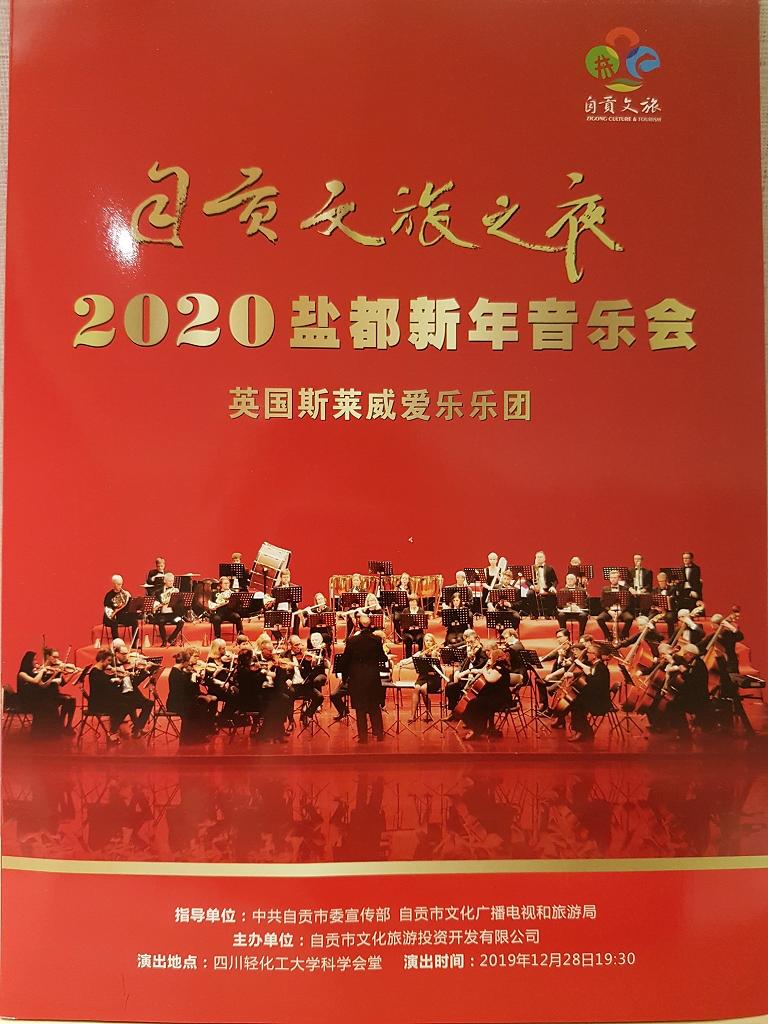
|
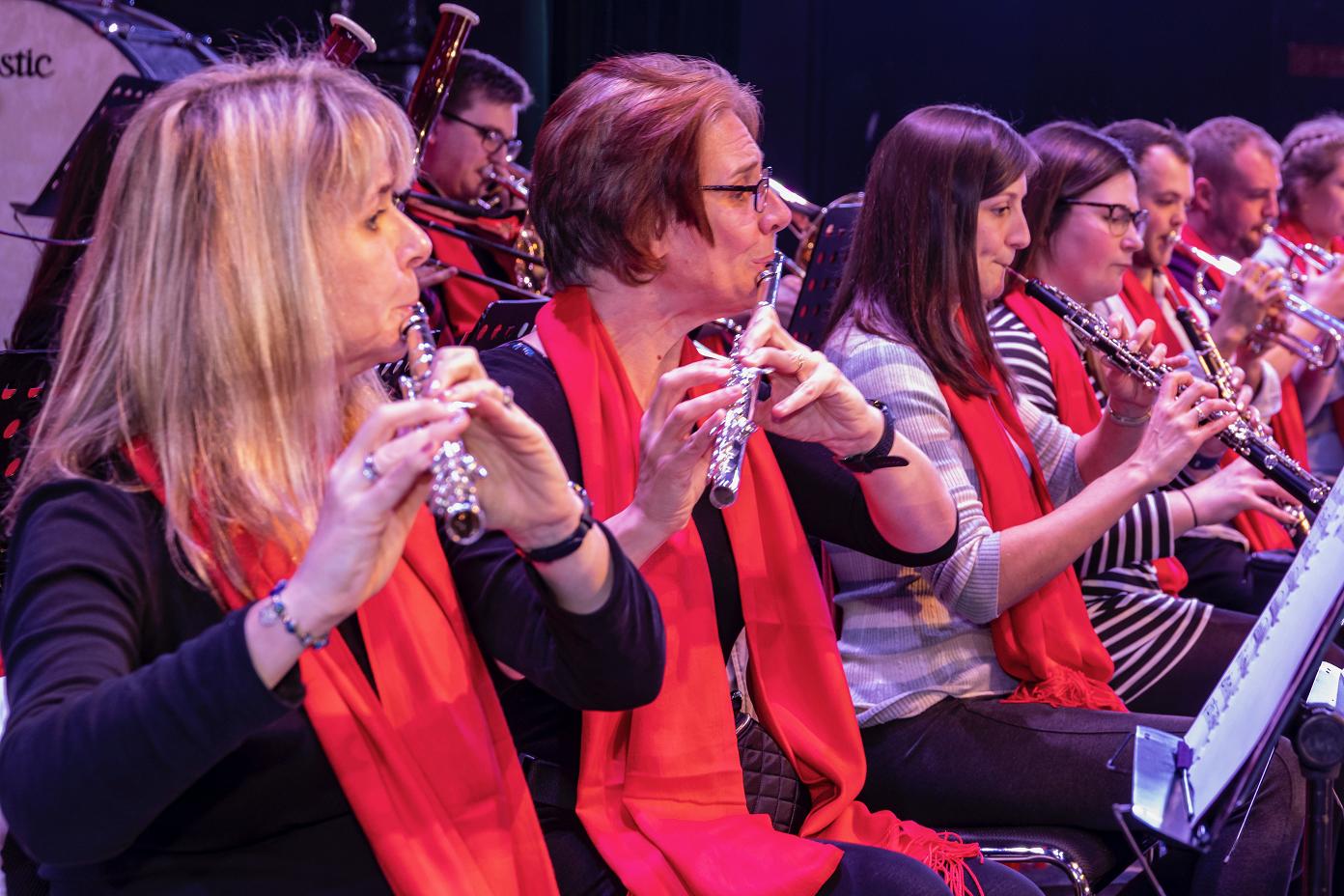 |
After lunch we walked to the university for our first rehearsal, where the organisers gave each of us a red pashmina scarf to wear for the first four concerts (in Sichuan Province) to make our black concert clothing look more festive in keeping with the New Year theme of the concerts. |
| This was only our second rehearsal together (or the first for those who had been unable to get to the pre-tour rehearsal in Slaithwaite), but we stepped up a gear for the performance and gave the music the sparkle it needed. We did feel a little disappointed afterwards that the audience had seemed quite muted in its response – but we soon learned that this was entirely attributable to the very dry acoustic in the hall, and in fact the audience had responded very positively! | 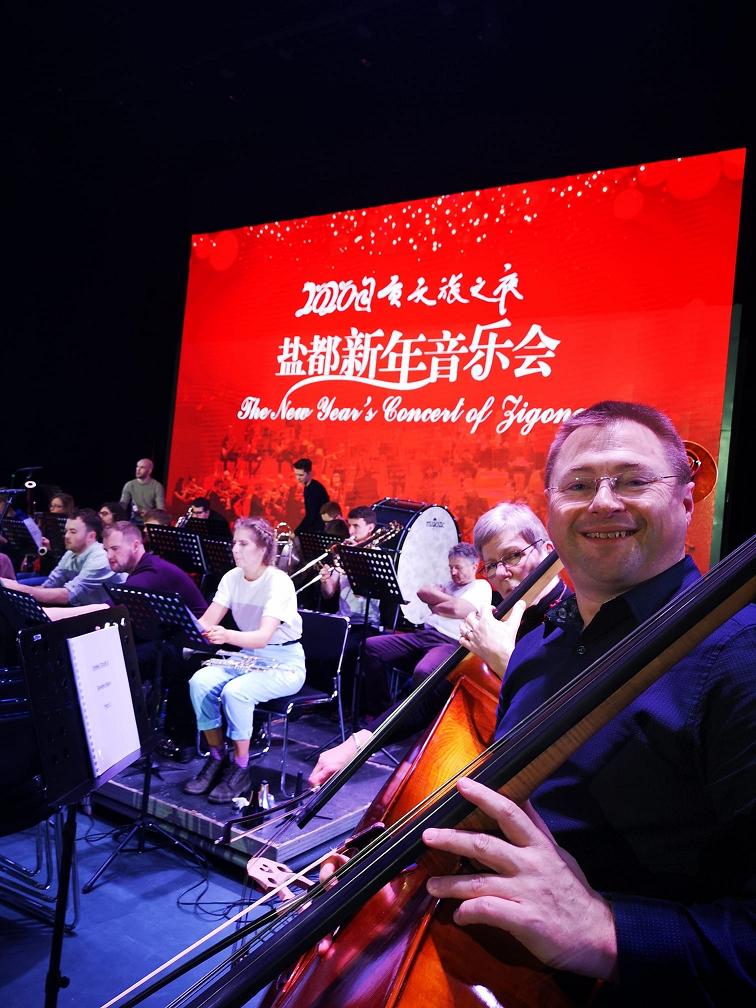 |
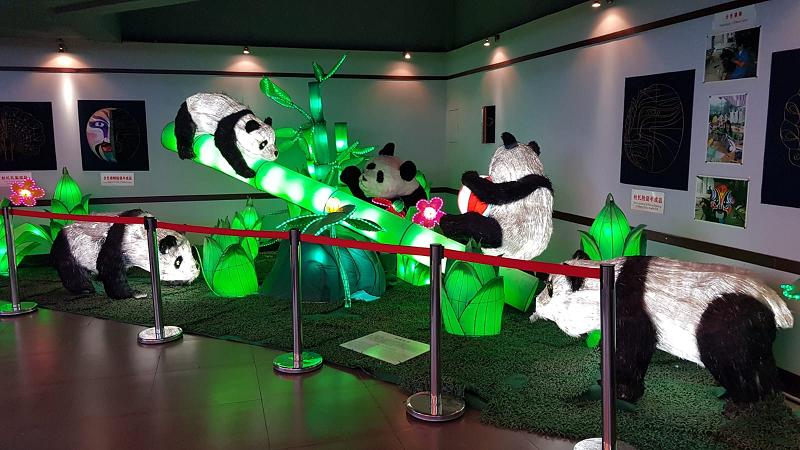 |
Thus began a tiring routine of early starts, long journeys to different parts of China, and short rehearsals preceding a total of eight concerts, many of which ran straight through without an interval. |
|
Our programme varied a little throughout the tour but certain items were in all the concerts, including Shostakovich Festival Overture, Dvorak Slavonic Dance No.8, Blue Danube, the ever popular encore Radetzky March, Mozart’s Papageno-Papagena duet from The Magic Flute, two Chinese songs, I Love You, China and Me and My Country (in which our singers impressed the audiences with their command of Mandarin Chinese), and the exuberant orchestral number Great News from Beijing, in which the trombones elaborated their train sound effects ever more enthusiastically and creatively as the tour progressed. |
|
Sunday 29th December – Concert 2, Ziyang |
|
| 10am and we were once more aboard the two coaches, heading for Ziyang, a couple of hours away. Stopping at the services, there was a group of girls and young women dancing to amplified music. This seems to be a popular activity in the parks, where we also saw people practising Tai Chi in the mornings, or playing badminton at any time of the day. | 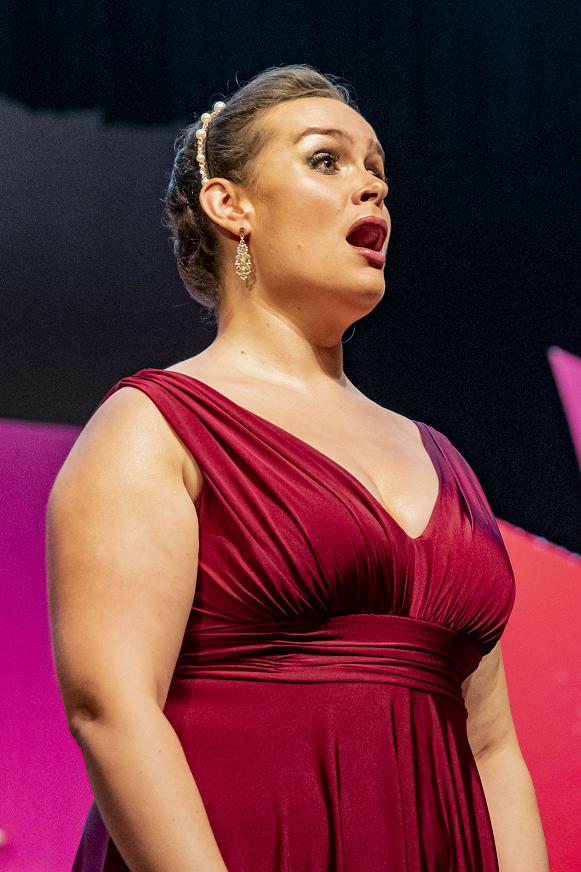 |
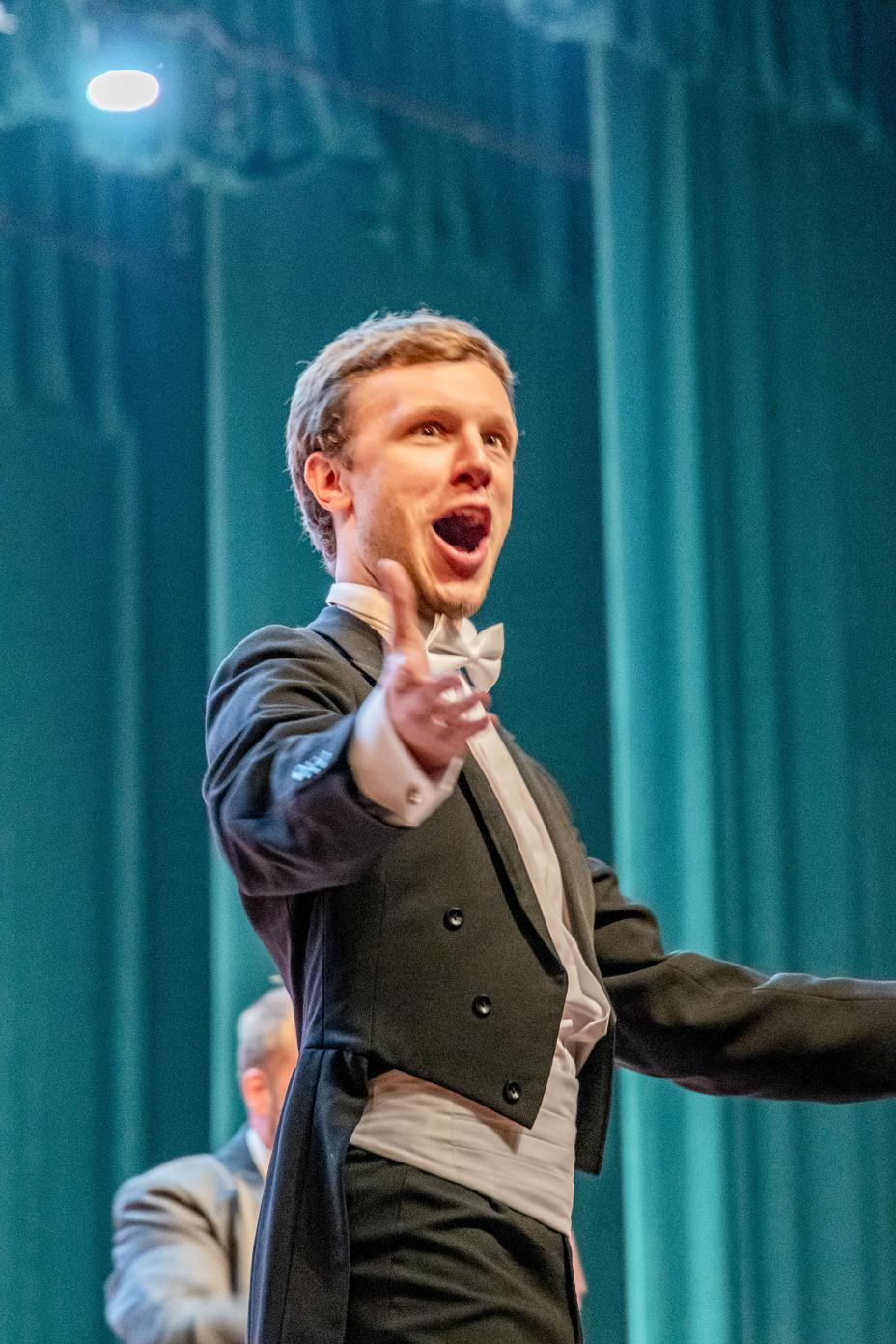 |
After lunch at our second hotel we were taken in the coaches to the Song Hong Performing Arts Centre, a pleasant venue with a warmer acoustic than at Zigong. The concert was very well received, and our two soloists wowed the audience with the addition of choreography, particularly to the Papageno-Papagena duet, during which Katy walked down the steps through the audience to meet Christian. |
|
We were delighted when Ben informed us at dinner that we would not be leaving Ziyang until 10.30am and three of us immediately planned an early walk to the pagoda tower in the nearby Culture Park. |
|
Monday 30th December – Free time in Ziyang –Concert 3 in Nanchong – Chengdu Airport Hotel |
|
|
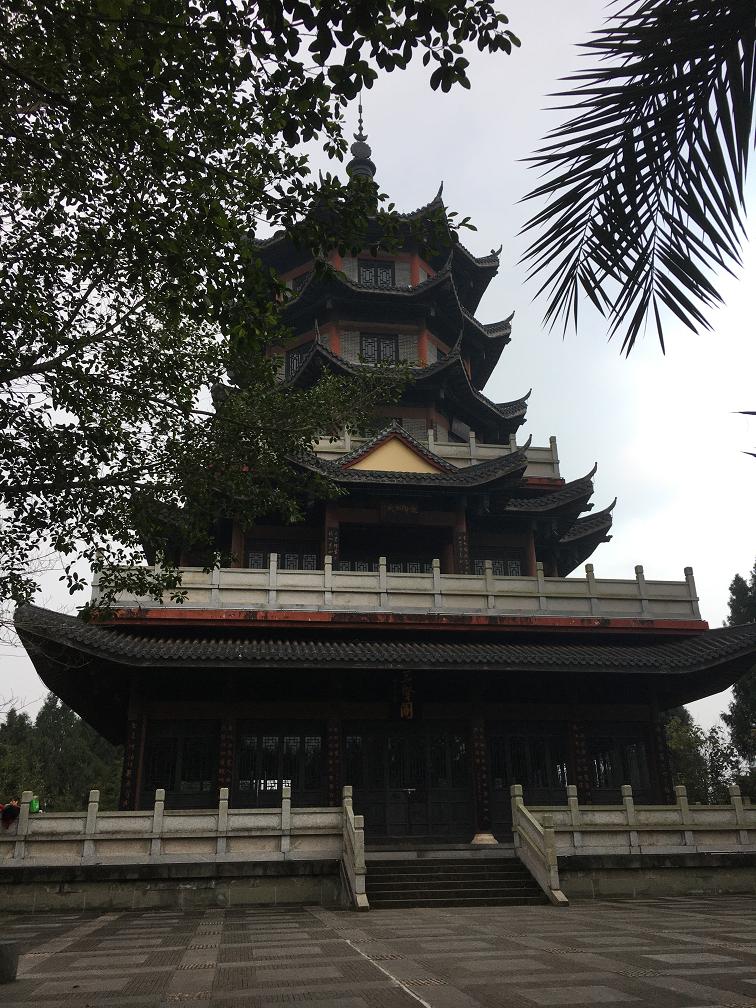
|
The three of us set off on our walk at 8am the following morning and walked towards the river, where we saw people walking across the railway bridge – actually on the railway lines! – despite it being very close to another pedestrian bridge. |
| In the park we heard I Love you China being piped through loudspeakers, providing a soundtrack for the badminton players nearby. We climbed up to the tower, and returned past some people practising Tai Chi, then walked across a pagoda bridge. | 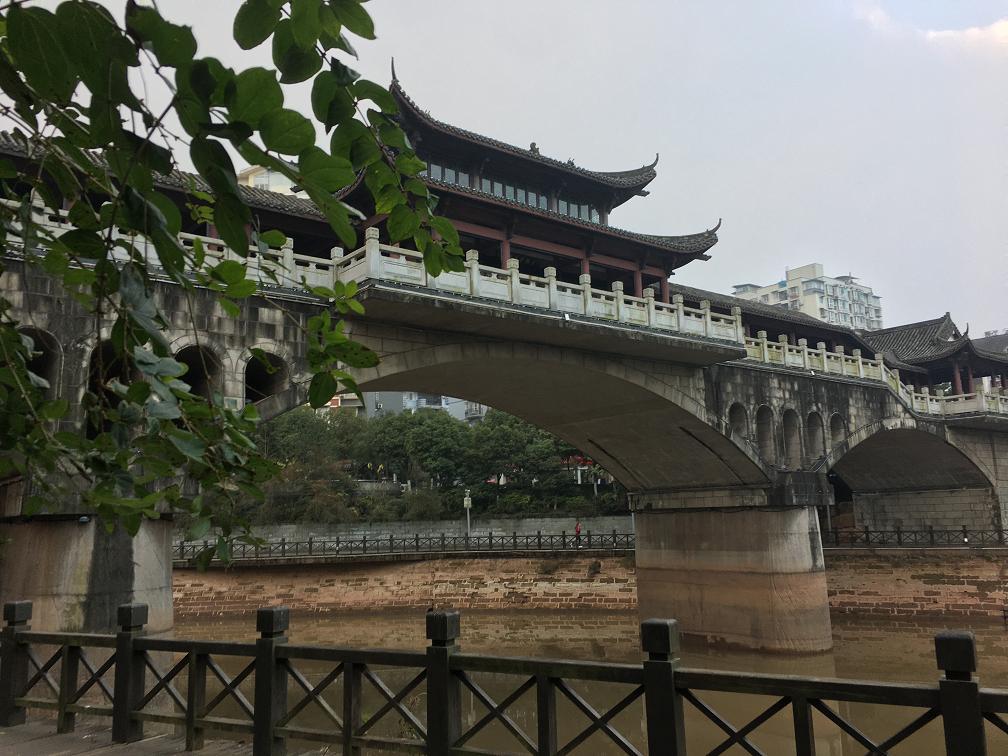 |
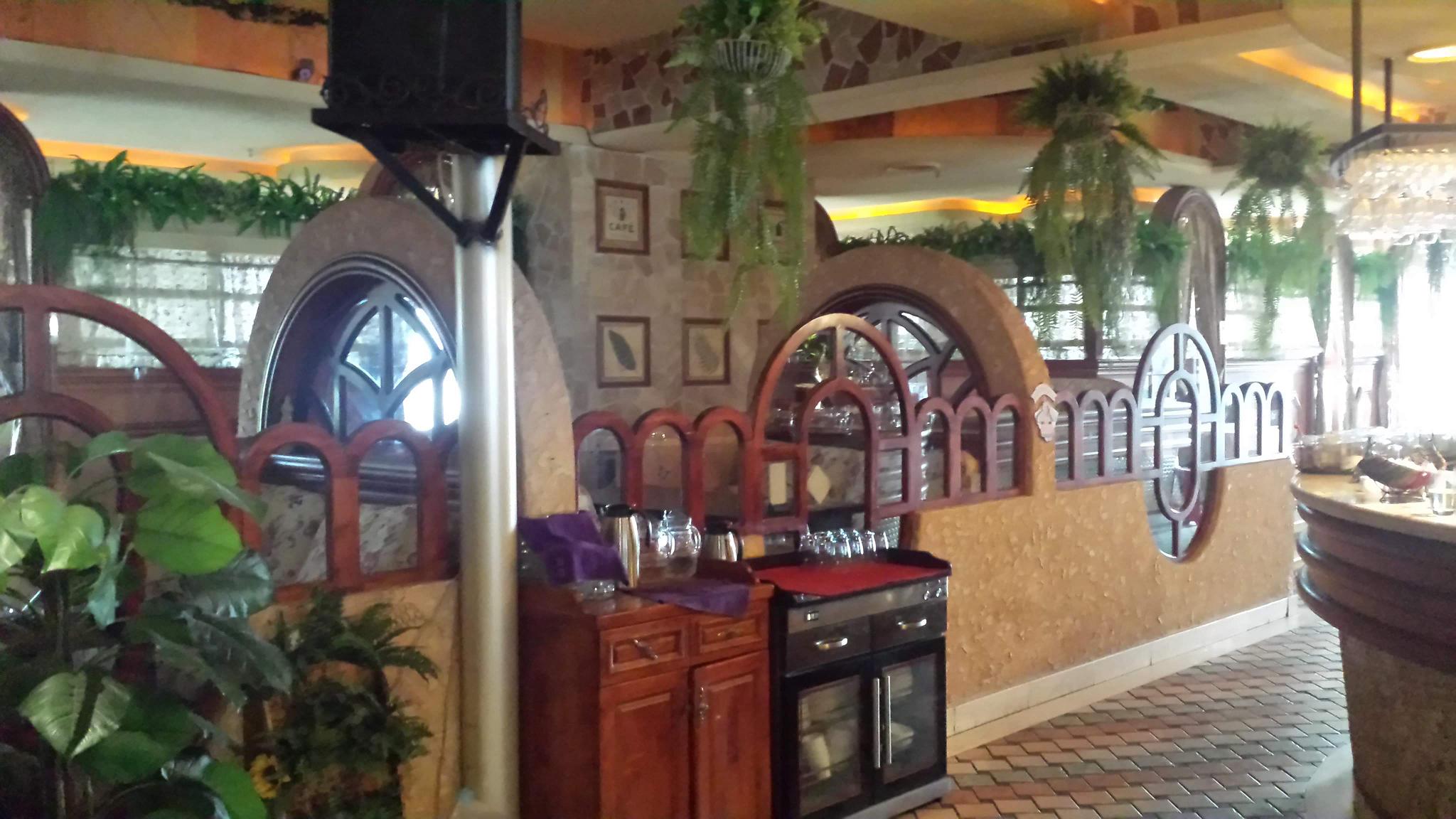 |
On the street we happened upon a quaint wooden door purportedly leading upwards to a tea & coffee bar, so, emboldened by each other, we ventured up the steps. On asking in our best Chinese “Do you have coffee?” we were gestured up another flight of steps into a rather grand tea room with prettily decorated seating booths. |
| It required three members of staff and their phone translation apps to order 2 cappuccinos and an americano…and after five minutes we were brought three glasses of hot water with lemon in. Several minutes later we were informed that the drinks would take a while – “Coffee machine needs to be aerated” – so (a little anxious by now) we communicated that we must leave by 9.30 to return to our hotel. Eventually each cup of coffee arrived five minutes apart. It was very nice, though not especially hot, and we made it back to the hotel, suitably caffeinated, in plenty of time for our departure. | 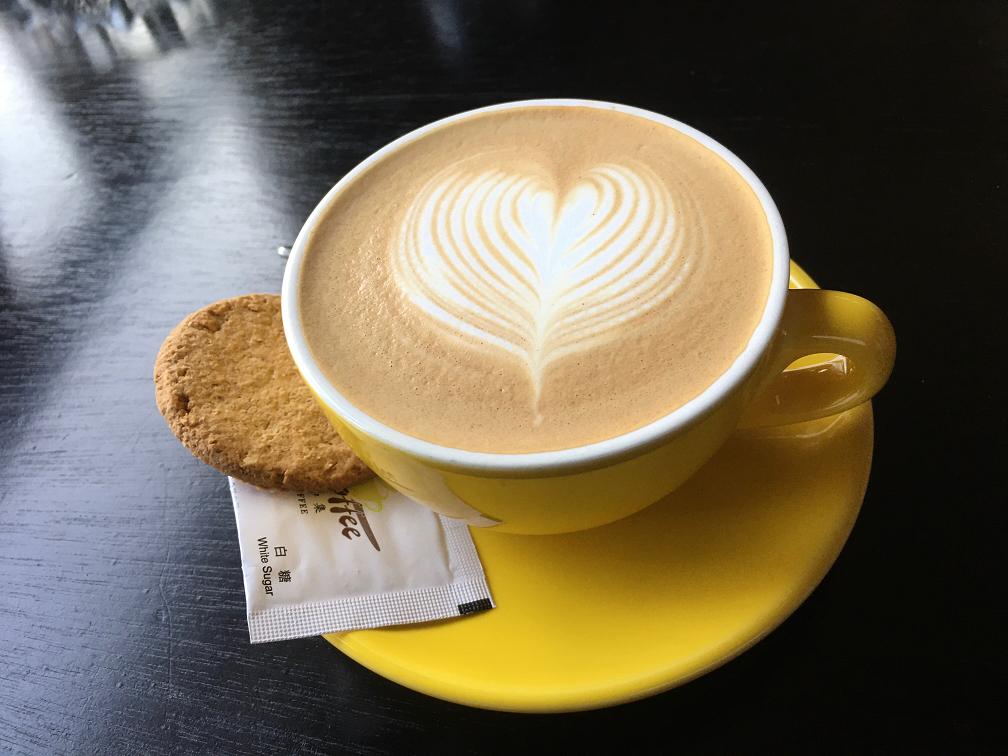 |
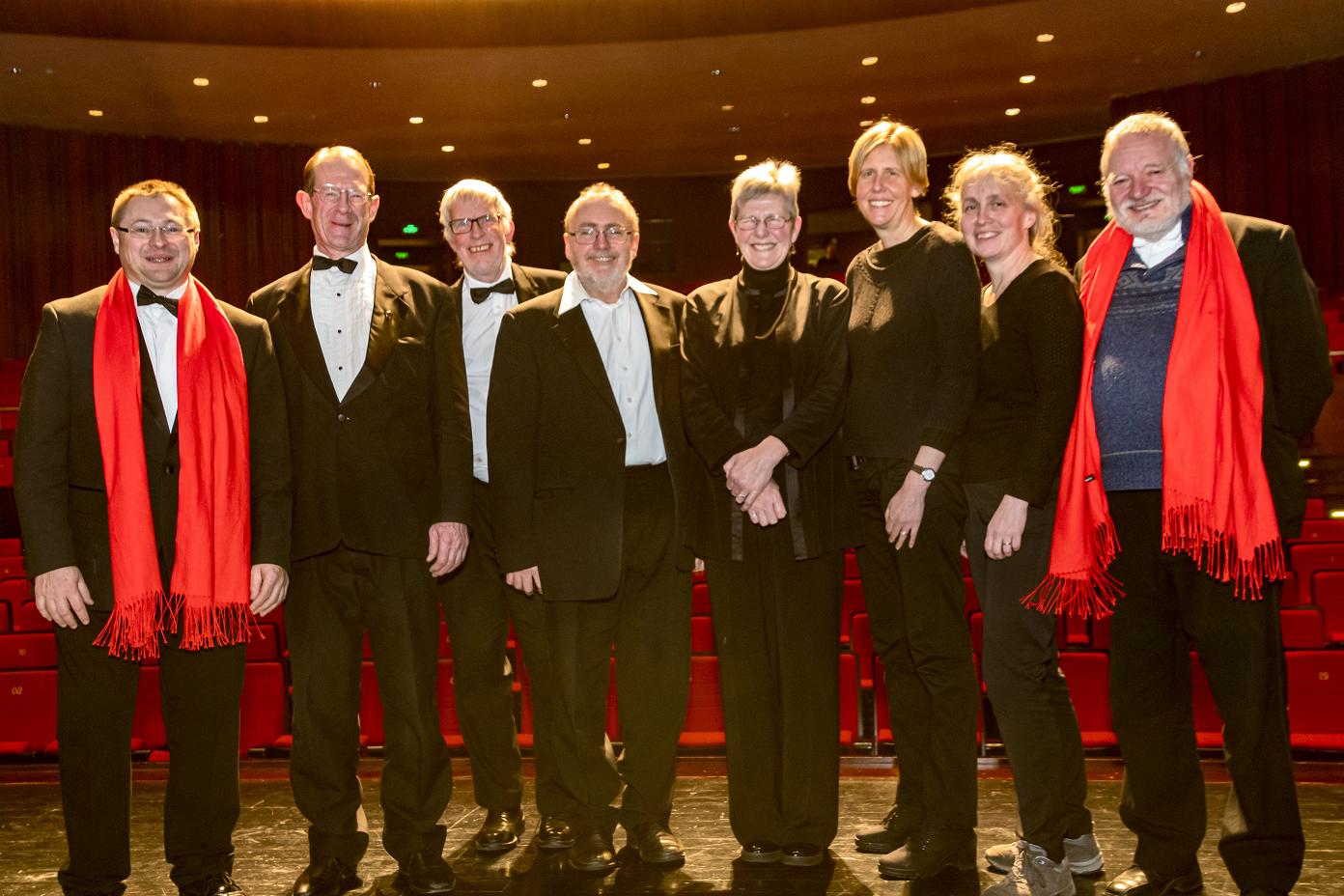 |
The coaches took us to Nanchong for lunch in a hotel where we wouldn’t be staying the night. I thought this was a shame as the food was very good! There was a free hour or so afterwards, during which some ventured to the nearby temple, while others stayed in the hotel dining area to relax. |
|
There was a very unfortunate and shocking incident during the rehearsal, when a member of the viola section fell off the front of the stage while talking to Ben. She banged her head, damaged her viola and her glasses, and also sustained some other injuries. She was taken to hospital and we were later very relieved to hear that her MRI scan was clear, but this was the end of the tour for her, which left us feeling shocked and saddened.
|
|
| Despite this sad event, the concert in Nanchong was our best so far: our ensemble was much improved as we were now getting used to performing together, and we had also had the chance to rest and adjust to the time zone. The audience were very appreciative. There would be just one more of this series of four concerts in Sichuan Province, for which we were wearing the red scarves, which had by now become an established piece of our concert wardrobe. Straight after the concert we had a 3-hour coach journey to a hotel near Chengdu Airport, where we tried to get a couple of hours’ sleep before our early flight to Panzhihua… | 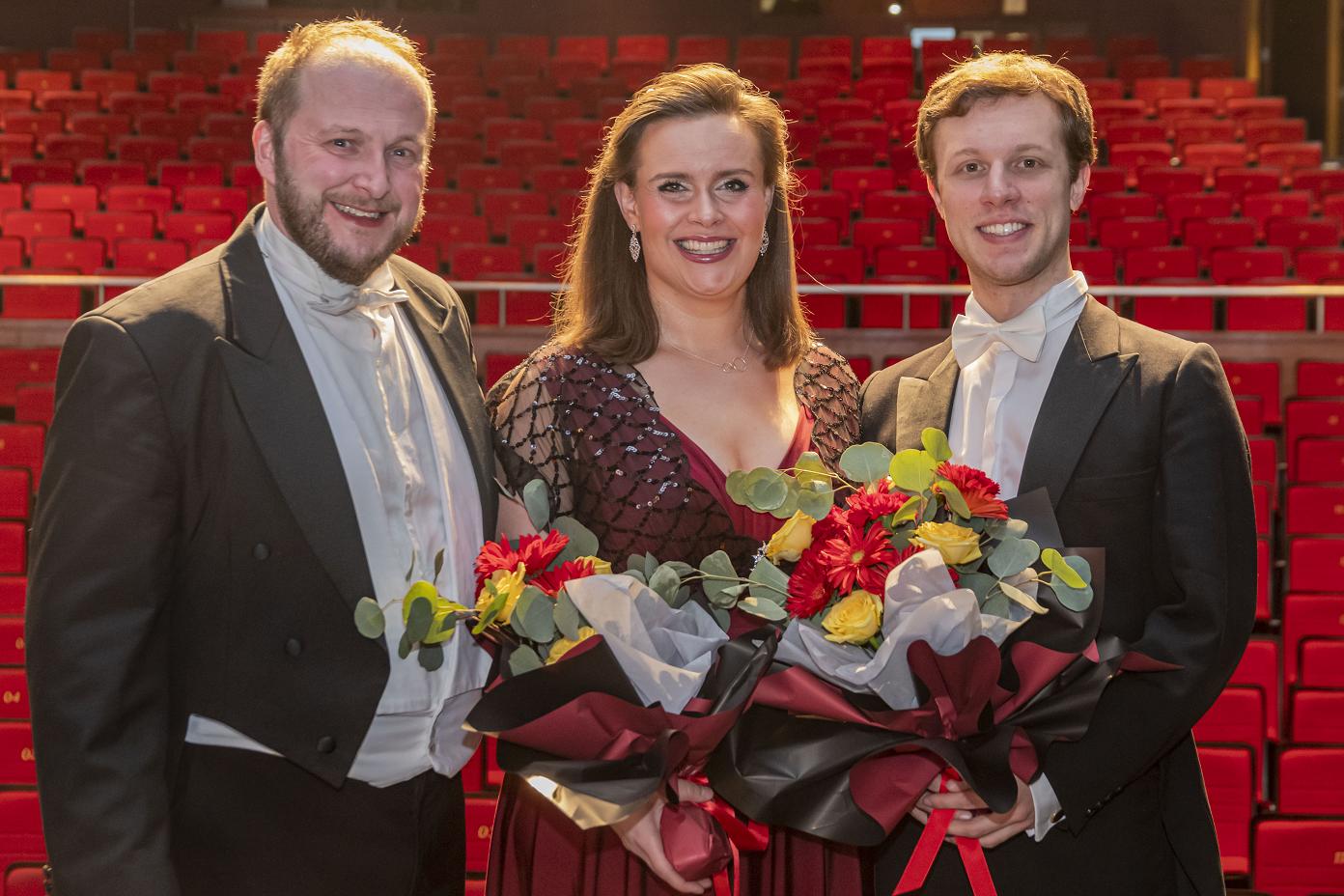 |
New Year’s Eve – Concert 4, Panzhihua |
|
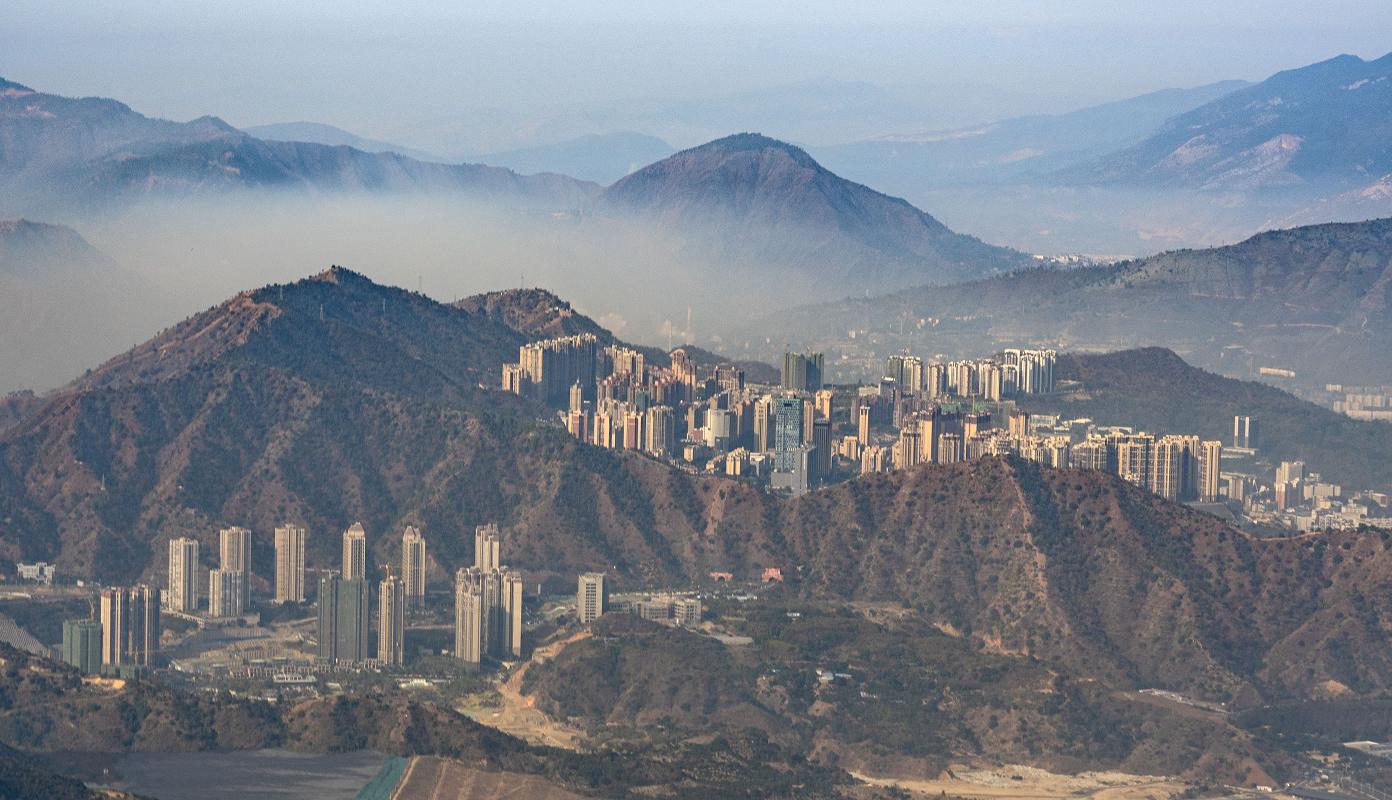 |
The following morning there were some rather bleary-eyed people boarding the coaches to Chengdu Airport. Approaching the initial security check on entering the airport, I suddenly realised that I didn’t have my suitcase to put through the scanner by the entrance. After very little sleep, I had absent-mindedly walked away from the coach, abandoning it on the pavement! I retraced my steps and fortunately it was still there, accompanied by a number of our group who were wondering why I hadn’t claimed it. Once through the check-in and main security check there was time to browse and get some breakfast. |
| The plane lifted us above the smog and after a while it cleared to reveal spectacular views of the foothills of the Himalayas. We came in to land at Panzhihua Bao’anying airport, which is situated on a mountain ledge 1,980m above sea level. There followed an equally spectacular descent down the mountain in our two coaches, towards the lake by which the city has grown. The climate there is warm all year round (it was around 22°C that day) and there was an array of exotic vegetation and flowers. Indeed, the name Panzhihua translates as Flower Garden. | 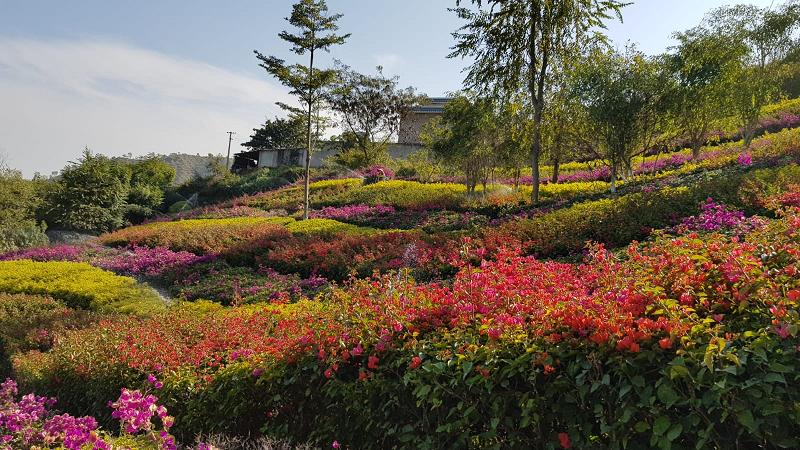 |
|
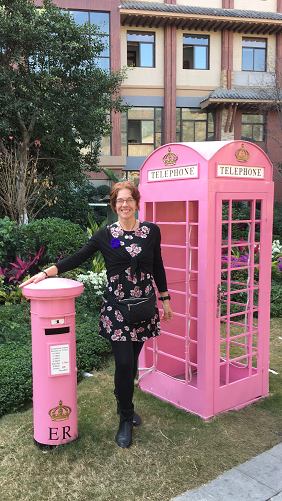
|
After lunch, some of us went to our rooms to catch up on some sleep, while others explored the scenic surroundings. This city is a major mineral mining centre, but it is also developing rapidly as a desirable place to live and visit, because the air is much cleaner than in other parts of China. Our hotel was set in pleasant grounds, and resembled a holiday village: many of us were accommodated in terraced chalets, along footpaths lined with flowers and western-inspired street furniture! |
| On the way to the rehearsal we were told that the sponsor of the four Sichuan concerts had invited us to visit the area that he was developing as a rural wellbeing village, so we had a group photograph taken in the grounds, before continuing on to the concert venue at Panzhihua University. We were less rested than in Nanchong last night, so a few people were feeling unwell/tired, but we delivered the music energetically and the audience loved it. | 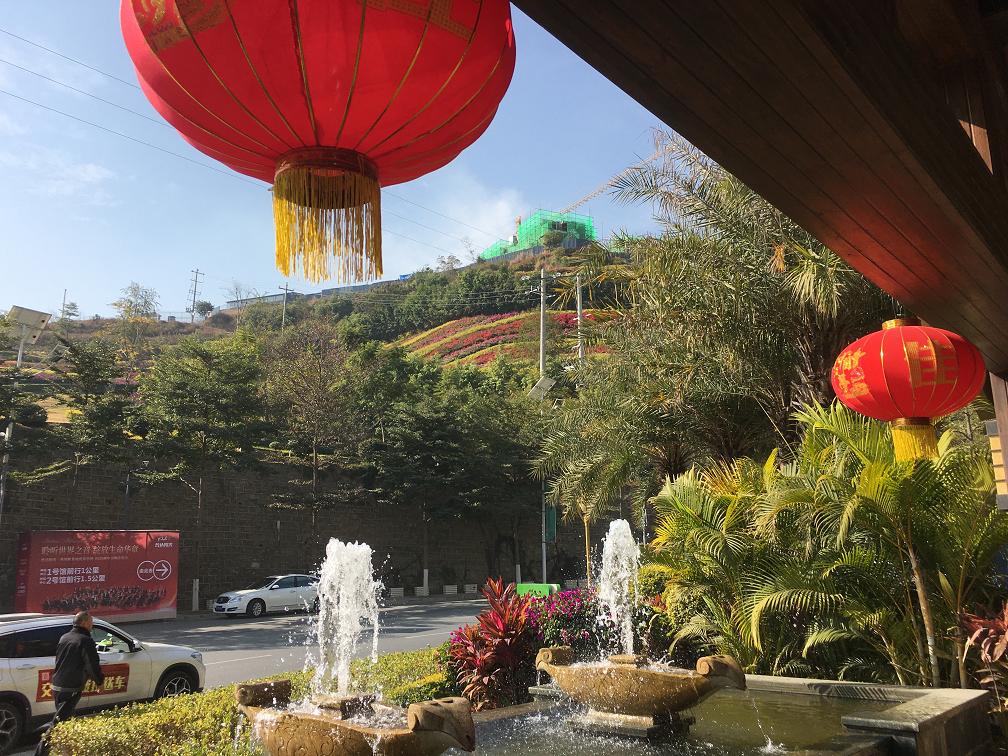 |
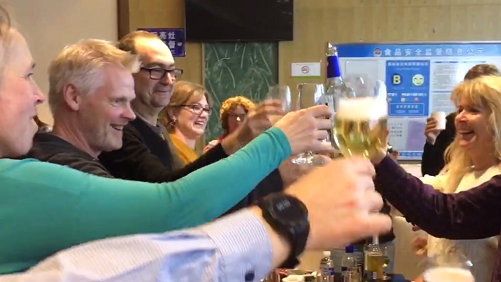 |
Afterwards at the hotel, Mr Sheng (the boss of OLA ASIA, which organises all the concerts) provided us with beer, champagne and strong rice wine to see in the New Year, and told us how delighted he was with how the tour was progressing. After a very early start – and because we were in the middle of such a demanding schedule – not everyone was able to stay up until midnight, but it was nevertheless a lovely moment of friendship and unity when we linked arms and sang Auld Lang Syne together, and then wished each other a Happy New Year. |
New Year’s Day 2020 – Concert 5, Foshan |
|
|
I for one would have loved to spend more time in Panzhihua, but the following morning we had to check out early for our flight to Shenzhen, which was followed by a long coach journey to Foshan. The travelling took all day because of heavy traffic going into Foshan, so we had a mere 30 minutes to freshen up and gather our concert gear together before being taken by coach for a meal in a restaurant adjacent to the concert venue. This was in a pedestrianised area, where there were also some little stalls selling handmade items including jewellery.
During our short rehearsal we were advised that the programme would be slightly different tonight, as this was the next series of concerts, and there would be an interval, so the programme was a little longer. The concert was very well received and by now we were getting familiar with the notes, which was helpful in the midst of so many long journeys and early starts. |
|
Thursday 2nd January – Concert 6, Yueyang |
|
| Today we made our first high-speed train journey of the tour. The security checks were much more onerous than I remembered from two years ago, and several people had items confiscated, such as aerosols, and even a swiss army knife. We headed north to Yueyang, a city in Hunan Province with a population of over 5 million people, where those of us who had been to China before immediately recognised the hotel as the one we had stayed in two years ago! We were given lunch and post-concert dinner at the hotel, where the staff were very kind and friendly, appreciating our faltering attempts at Chinese, and one member of staff spoke quite good English. | 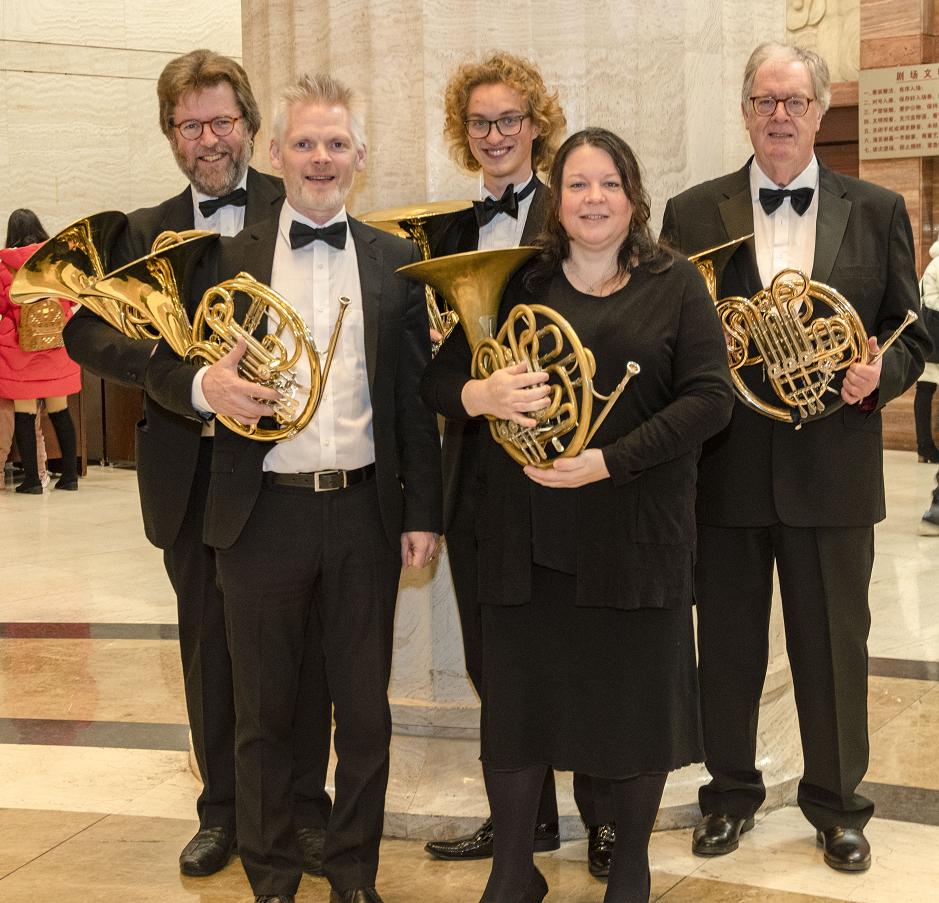 |
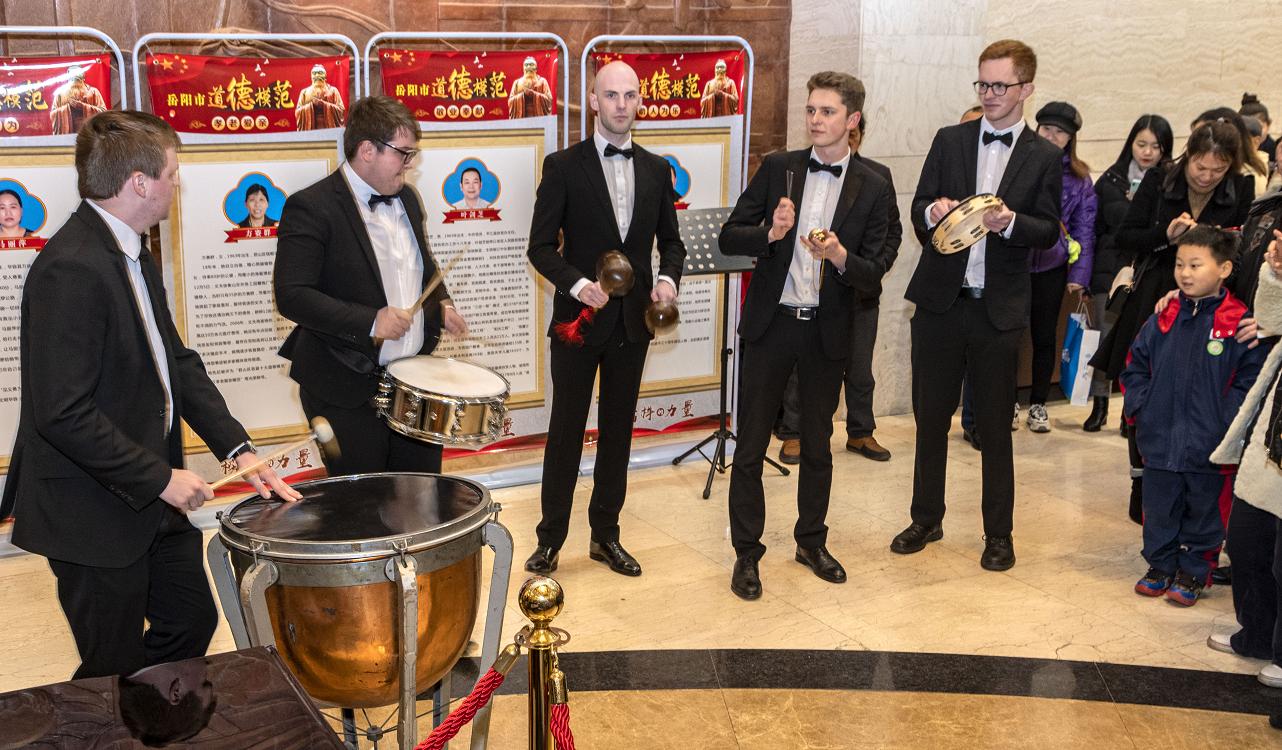 |
The concert in Yueyang was the best received yet. After our short rehearsal, a small number of us (solo violin, solo flute and percussion group) performed items in the foyer as the audience were coming in. The children were very excited to be there and wanted to play the piano and try the percussion instruments. Gerard, our guest tuba player and unofficial photographer, also took photographs of the different sections of the orchestra in the foyer. This audience was very warm and appreciative during the concert. When the titles of the Chinese songs came up on the screen, there was an audible murmur of approval from the entire audience, and it was clear that they really appreciated the fact that our singers had learned these much-loved songs. The orchestral showpiece, too – Great News from Beijing, which celebrates the creation of the railway, and depicts a train bringing the newspapers from Beijing to the outlying provinces – was a big hit, and the orchestra delivered it with even more aplomb than on previous evenings. |
Friday 3rd January – Concert 7, Shanwei |
|
| Unlike two years ago, there was no time to explore Yueyang the following morning because we had to leave early for a journey involving two high-speed trains to Shanwei in Guangdong Province. The concert in Shanwei went really well, and we were especially pleased about this because a number of government officials were sitting in the audience. There wasa moment of unscripted drama, which was skilfully incorporated into the performance: Katie (or Papagena) was making her way as usual down the steps through the audience to join her Papageno, when she tripped on a small unmarked ramp. There was a collective intake of breath from the audience as she went down, still singing as if nothing had happened… A second later,her head reappeared, and she was up, assisted by a nearby photographer, still singing all the while. Papageno was looking very concerned for her, and instead of staying in his usual position, he crossed the stage as he sang, to help her up the steps onto the stage, as the audience applauded and cheered. They continued their duet throughout, as if this had all been part of the act. In Great News from Beijing, the trombones really went to town with their train whistles, and also in the final chord, where strains of other melodies such as Jingle Bells were creeping in by now… | 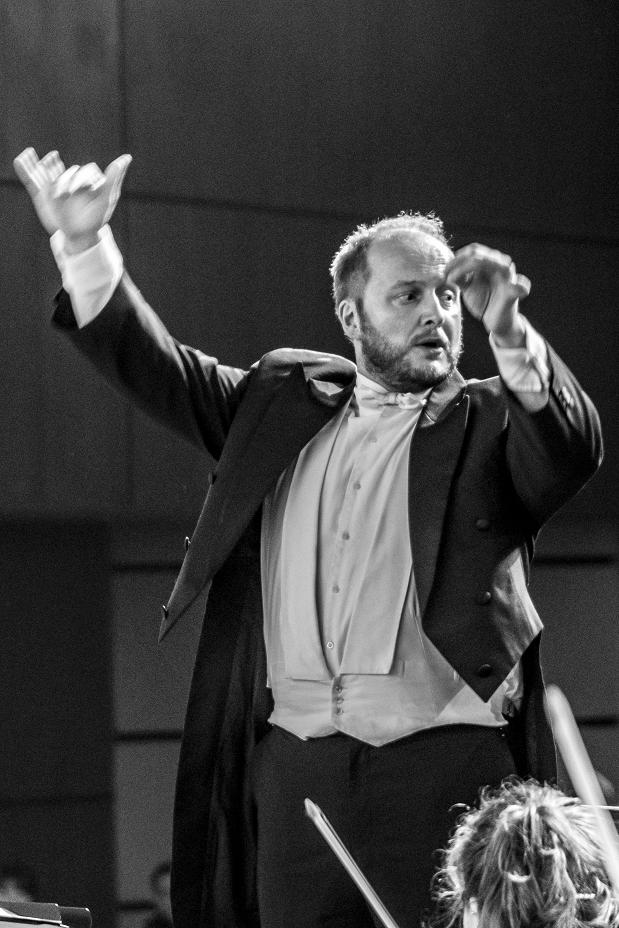 |
Saturday 4th January – The Long Journey North to Xi’an |
|
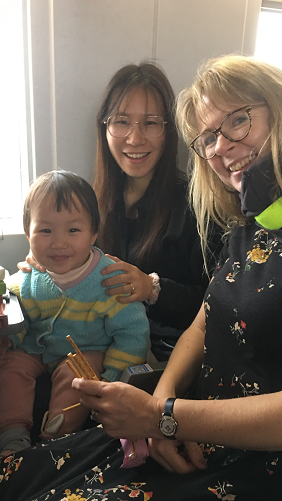 |
This was the longest day of train travel, but we didn’t mind because we had been promised a free day on Sunday with the option to see the Terracotta Army. Breakfast was at 6am, followed by two train journeys, the second one 9 hours, from Guangzhou to Xi’an. At Guangzhou, one of our violinists got separated from the group 5 minutes before the train was due to leave, but fortunately she was reunited with us just as we were boarding the very busy train. Jane was sitting next to this lovely family on the train, and they passed the time teaching each other to count to four in English and Chinese, using some little biscuit boxes! |
Sunday 5th January – Visit to the Terracotta Army |
|
| Lulu arranged for a coach to take a large group of us to the site of the Terracotta Army, east of Xi’an, and she had also found us an English-speaking tour guide. The tour was very impressive. Soon after ascending to the throne (aged just 13) in 246 BCE, the first emperor of China, Qin Shi Huang, ordered for figures to be created of his army, their horses and chariots, and of his entire entourage to protect him in the afterlife. The site was discovered in 1974 by a farmer (pictured with Chris) and the excavations are expected to continue for many years to come. |
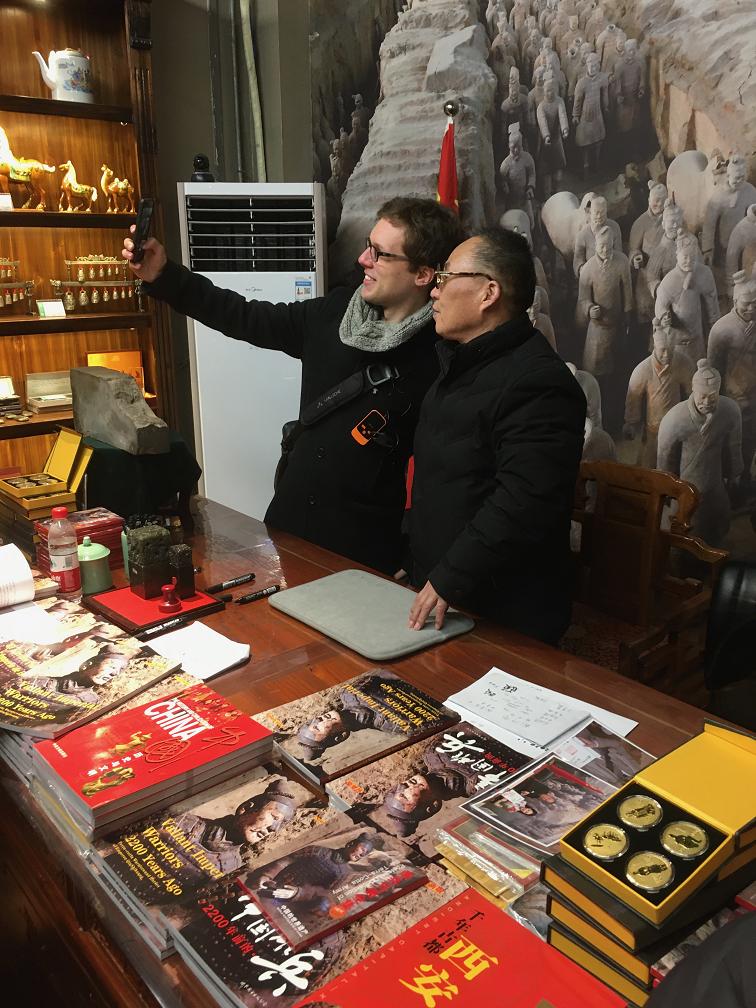
|
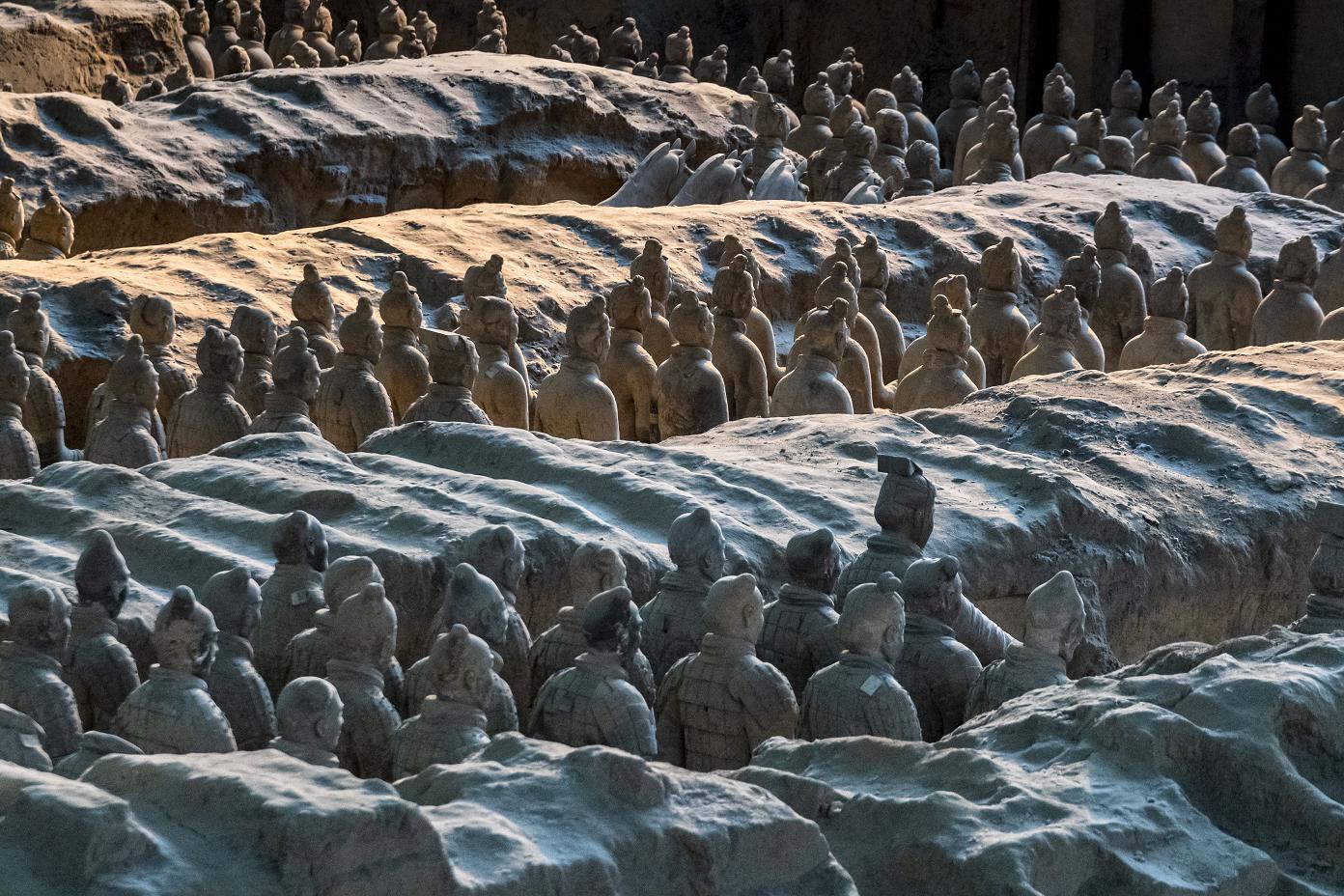 |
First we went into the main pit, which is the size of two football pitches and is now undercover. This contains the main army of over 6,000 figures, facing east towards the enemy. Behind these rows and rows of soldiers is a large area where figures are still being excavated and painstakingly reassembled. When they are first removed from the ground, they still have some of their original colours, but once out in the open air, this becomes oxidised within minutes to a uniform clay colour. Other areas of the museum have lower levels of lighting and special air conditioning, in which we were able to see figures with some of their colour remaining. |
| On returning to the hotel, some of the group went into Xi’an to visit the city walls, or the market stalls near the city hall, where there was a light show with lanterns and music. There was no arranged group meal, but Lulu had ordered a cake for Jordan’s birthday(one of our violinists). As we congregated in the foyer seating area to eat it, the hotel staff kindly offered us the use of the upstairs breakfast area, which resulted in an impromptu birthday party to complete this very enjoyable free day. |
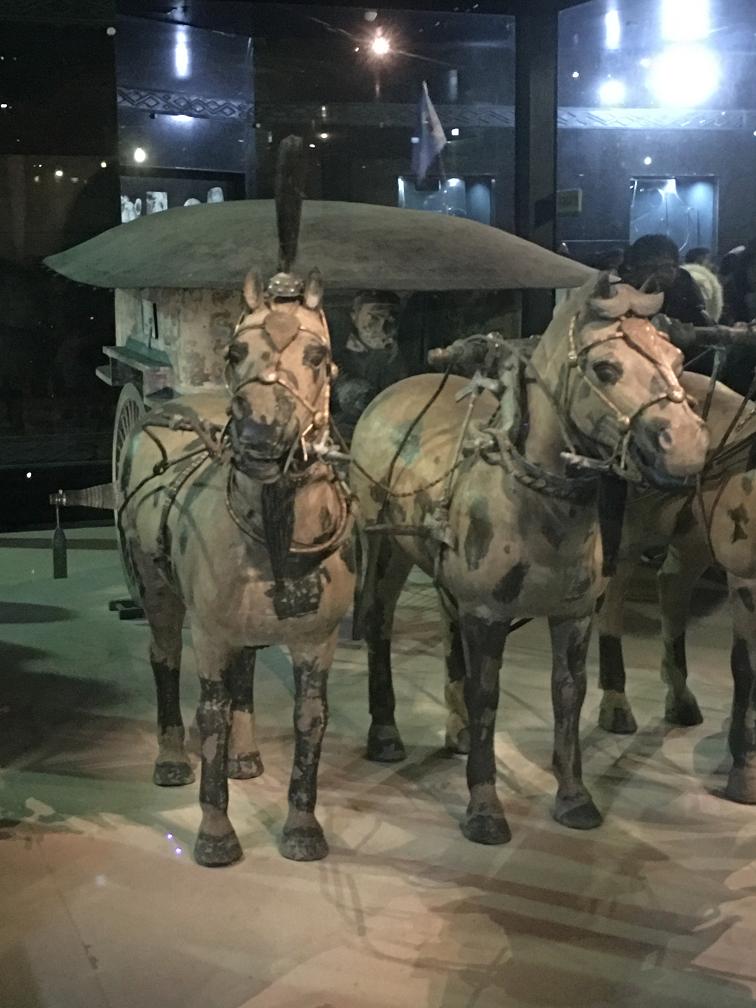
|
Sunday 6th January – Concert 8, Xining |
|
|
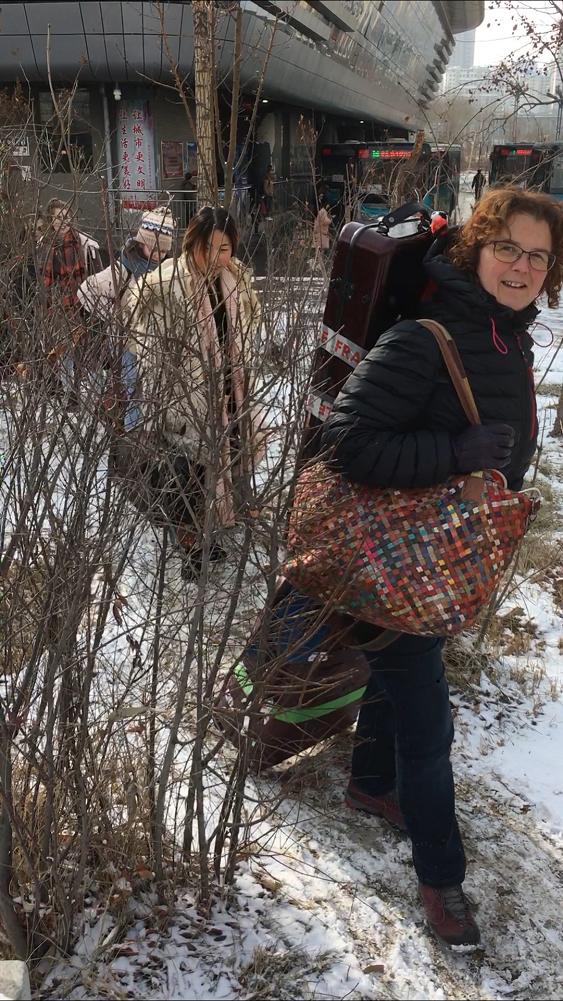
|
We checked out early for our last train journey of the tour northwest to Xining (by the Tibetan Plateau), where we would give our final concert together. As the journey progressed, the landscape became increasingly barren and mountainous, with snow on the ground in places. Some of the built-up areas appeared to be solely industrial, without the housing blocks that we had seen in every city we had passed through before. The temperature on arrival was much colder than Xi’an (which had felt similar to a chilly British winter day). There was ice and snow all around, accompanied by the sound of constant scraping created by large groups of workers clearing it with shovels. On exiting the station, we had quite a long walk, unexpectedly dragging our luggage across some snowy undergrowth to reach the coach and separate trailer,into which most of our luggage was then loaded. The Pengmu Hotel was about 20 minutes away, and had curtains resembling laminated sleeping bags across the entrance doors to keep out the cold. There was no organised lunch today, but the hotel was close to an area with shops and market stalls, so there was a good choice of food nearby. |
| On the subject of food, those of us who had visited China two years earlier tended to agree that we had enjoyed the food much more this time, perhaps because we knew what to expect, or perhaps because of regional differences between the two tours. The people who struggled the most were the vegetarians, because even the side dishes/rice would sometimes contain meat, leaving them with very little choice apart from the vegetables.One failsafe option was the pots of instant noodles, available cheaply in all the shops, with hot water stations in many locations, including on the trains, so they could be eaten anywhere. |
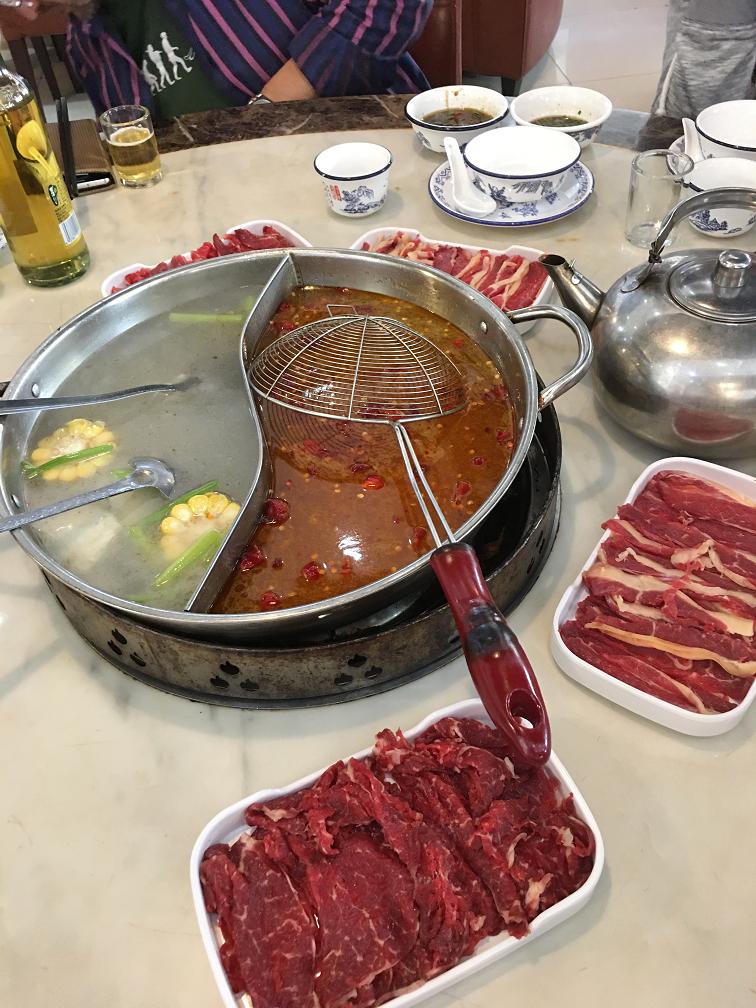
|
|
After lunch and a couple of free hours, we walked to the concert hall over the icy pavements, which were very slippery in places. At the rehearsal, Ben reminded us that this would be the last concert involving this unique group of people. The audience loved the concert, and as the final notes of Radetzky March rang out, I felt sad that we would all soon be going our separate ways.
|
|
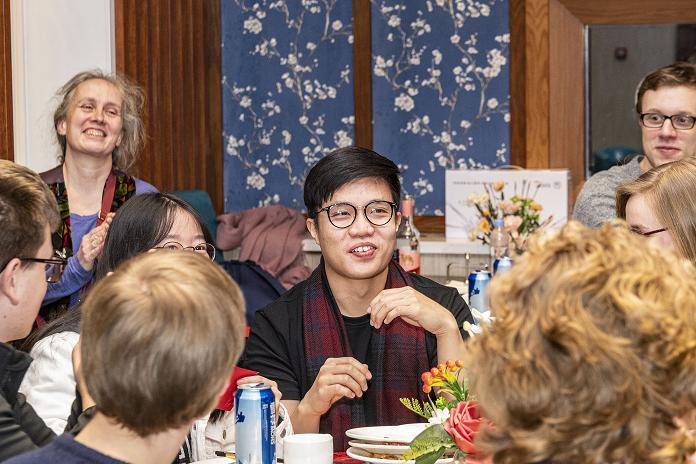 |
Over these last two weeks, new friendships had been forged and existing ones strengthened, in a way that would not happen by meeting weekly on Monday evenings to rehearse. We had relied upon and trusted each other, not merely to ensure the success of our musical performances, but in our day-to-day life on the tour, supporting each other when we felt unwell or overtired, sharing moments of fun and laughter, and adapting to each new situation as we travelled thousands of miles across this vast, unfamiliar country. |
| Lulu and her assistant,Didi (this is his nickname, which means “Little Brother”) were a constant source of support and positivity throughout the tour. Lulu in particularhad so much to organise to make sure everything ran smoothly, and she always had a smile on her face and a friendly word for everyone. | 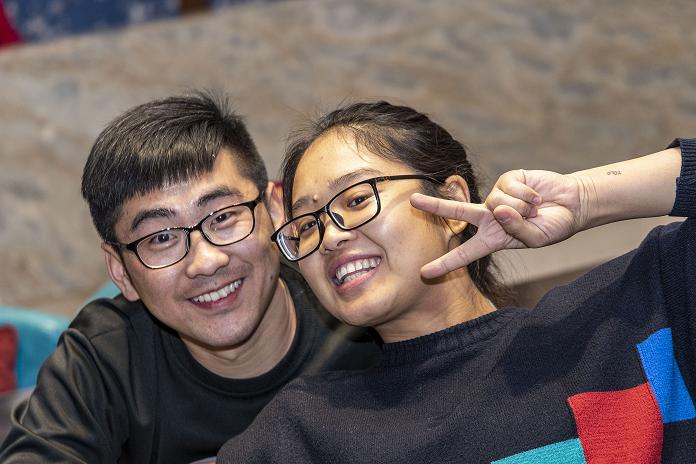 |
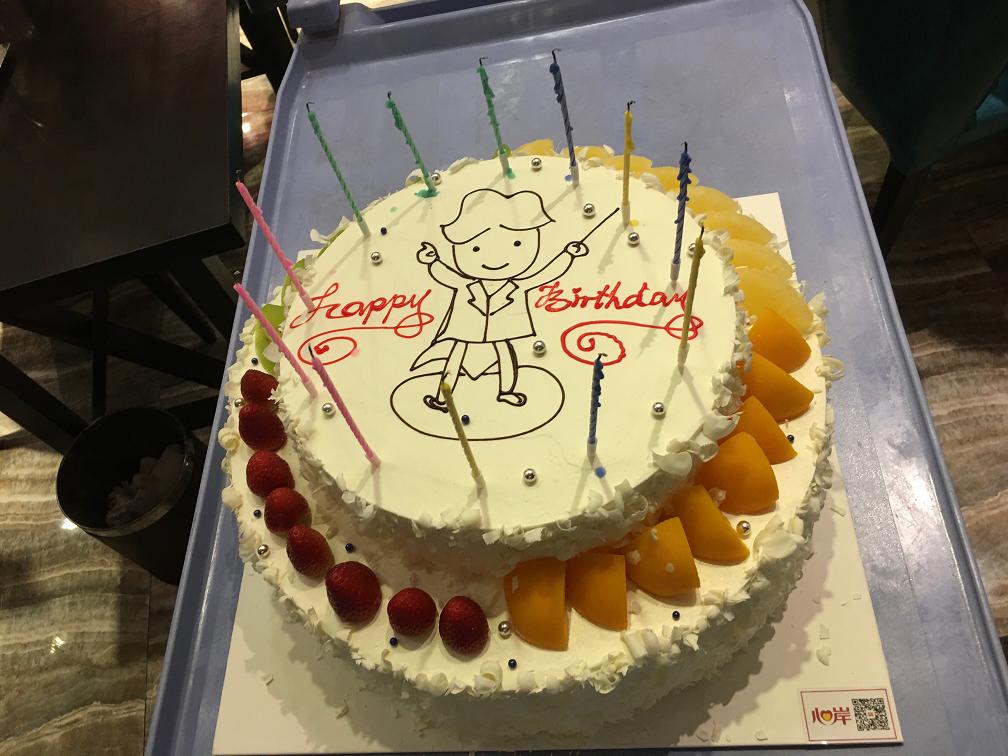 |
She even organised two birthday cakes: the one for Jordan while we were in Xi’an, and this one for Ben’s 40th Birthday, which we celebrated at dinner after our final concert in Xining. Ben’s birthday party was a lovely conclusion to the eight concerts. |
| He gave a speech thanking all the people who had contributed to the success of the tour, then Felicity (longstanding SPO member and cellist) stepped forward to thank Ben, without whose hard work none of this would have been possible. The cake was wonderful, and Mr Sheng had once again provided us with drinks. |
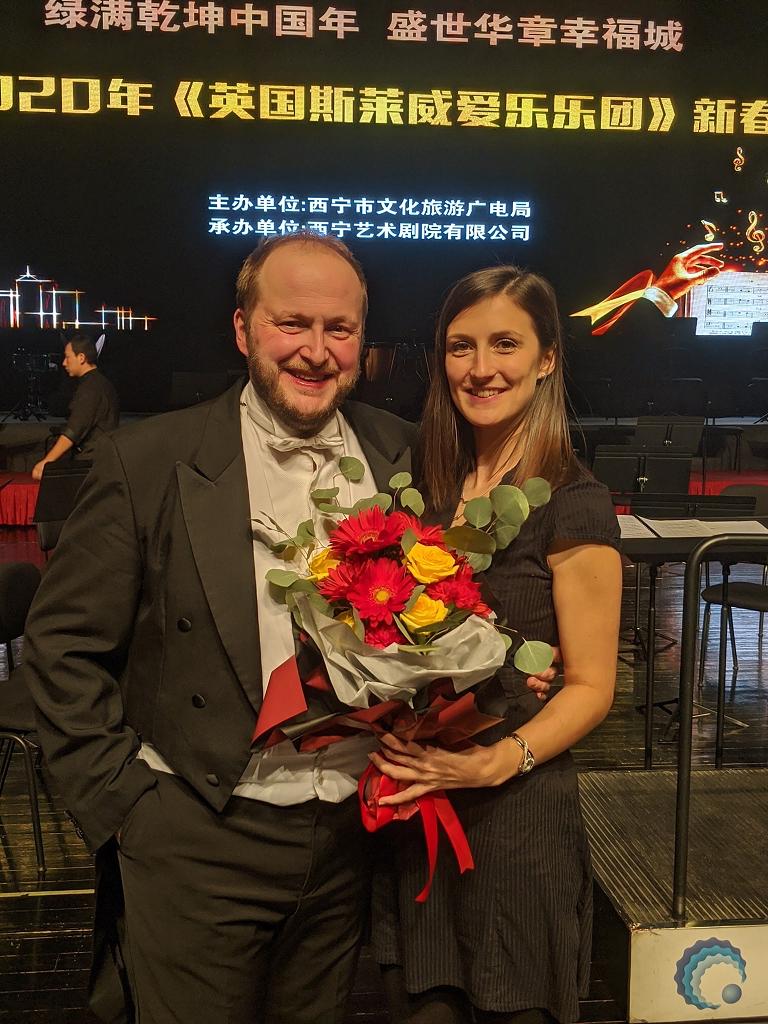
|
|
There was some free time in Xining the following morning, during which some of the group went to the zoo and saw pandas, which had been brought there from Chengdu Zoo. Others tried to find a Tibetan market that no longer existed and ended up in a modern shopping centre, followed by a nearby museum celebrating 70 years of Communist China, which was very interesting, but they were obviously not expecting foreign visitors because no English translations were provided. |
|
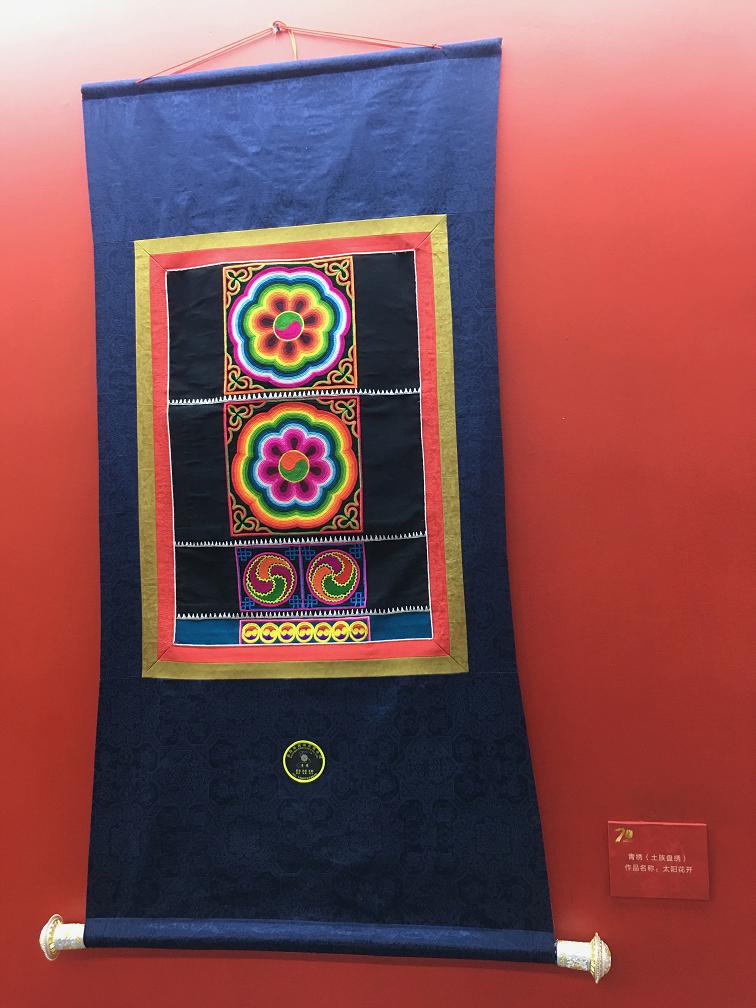 |
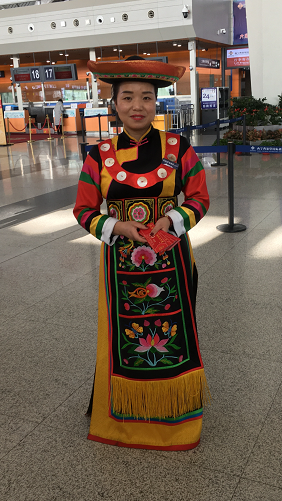 |
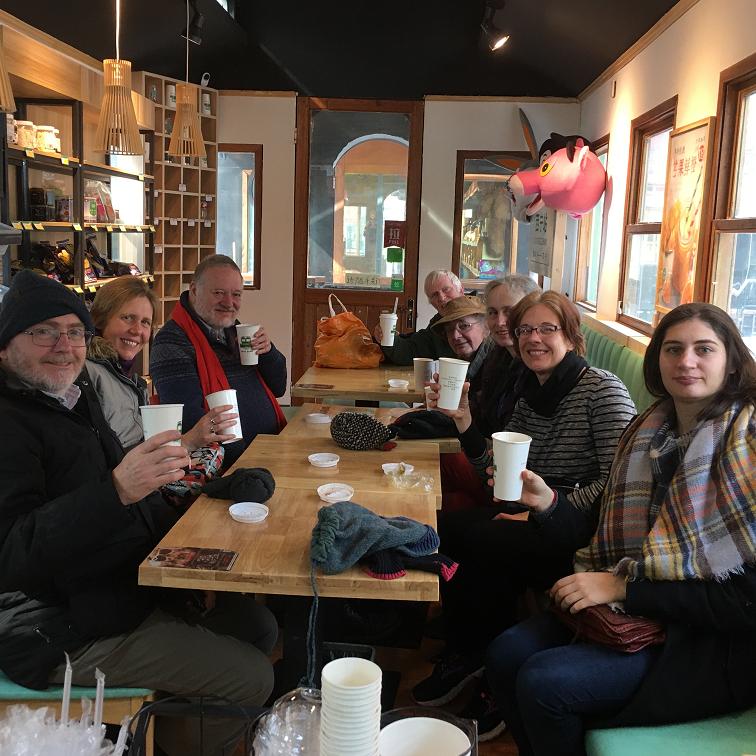 |
Then some of us ate lunch in a train carriage near the hotel, which had been converted into a café. |
| After lunch we were taken to Xining Airport. The flight took us south once more to Guangzhou, Guangdong Province, and involved a half-hour transit stop at Zhangjiajie, which took many of us by surprise. Spirits were high as we checked in to the Vienna Hotel in Guangzhou that evening, and we gathered spontaneously in the dining area to celebrate the end of a very successful tour. | 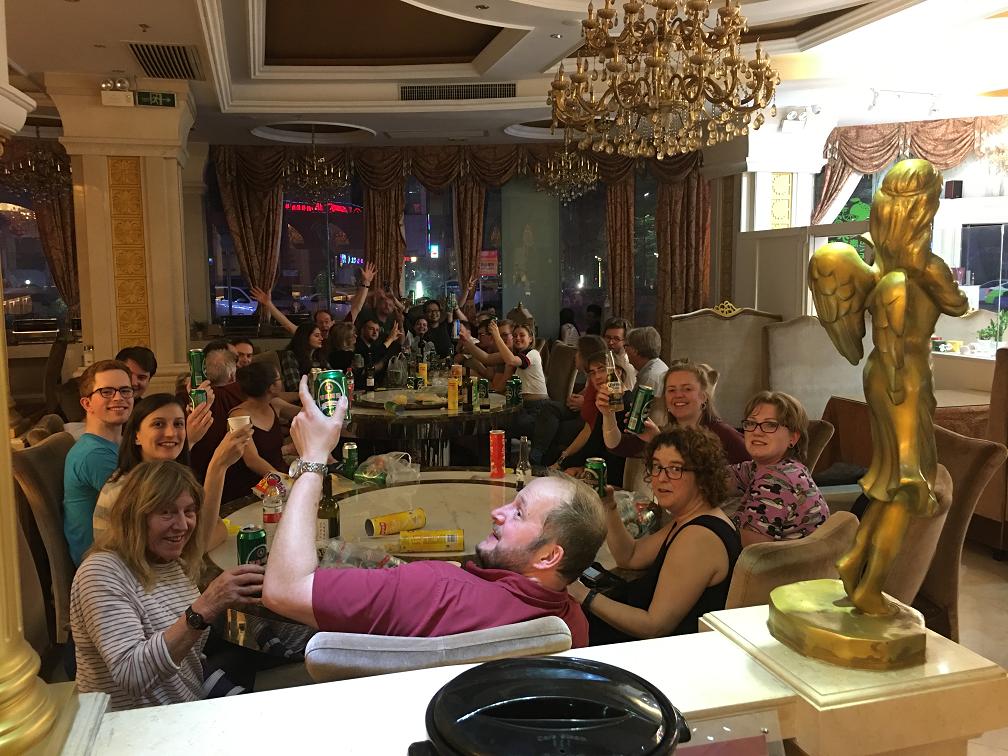 |
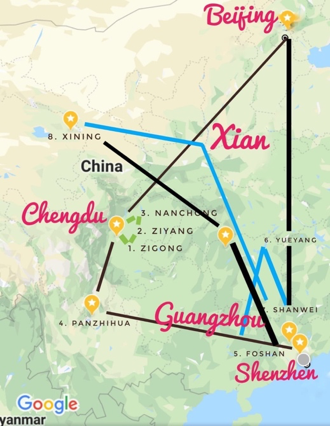 |
The map shows the journeys we had made, by plane (in black), high-speed train (in blue) and coach (in green) totalling approximately 13,500 miles in China alone – without considering our two long-haul flights between Manchester and Beijing. What an adventure it has been and I very much hope we will get the chance to do it again! |



